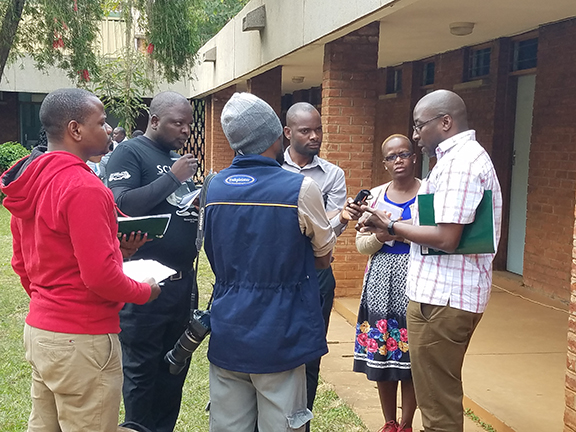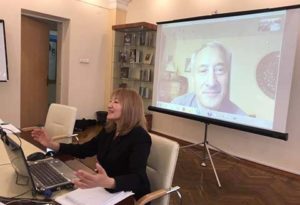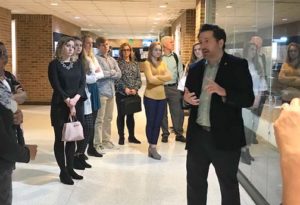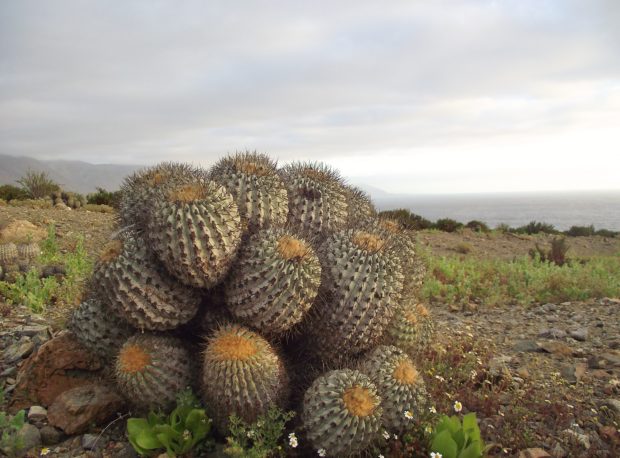
Chiku Mtegha, a researcher at the Lilongwe University of Agriculture an Natural Resources, explains to African journalists research into using chemicals from local plants to deworm goats.
Knight Center Senior Associate Director David Poulson contributed to a recent article on building the capacity of academics to do relevant research at African universities.
“How design thinking united researchers and farmers” appears in the African edition of The Conversation.
It reports on a strategy that encourages academics to create, develop and implement their own research agendas to more directly address the needs of people. Continue reading



